 Fr. James Martin is up to his innocent-sounding trickeries again. I’ve written about them before, but first things first. There’s been a lot of doubting on my Facebook page of late that the Catechism calls homosexuality—the orientation itself, independent of any homosexual acts—“disordered.” But the does say that, quite plainly: “The number of men and women who have deep-seated homosexual tendencies is not negligible. This inclination, which is objectively disordered, constitutes for most of them a trial.”
Fr. James Martin is up to his innocent-sounding trickeries again. I’ve written about them before, but first things first. There’s been a lot of doubting on my Facebook page of late that the Catechism calls homosexuality—the orientation itself, independent of any homosexual acts—“disordered.” But the does say that, quite plainly: “The number of men and women who have deep-seated homosexual tendencies is not negligible. This inclination, which is objectively disordered, constitutes for most of them a trial.”
The Catechism, homosexuality, gay priests, & Fr. James Martin.
BY: Henry Matthew Alt • June 1, 2024 • LGBT Issues

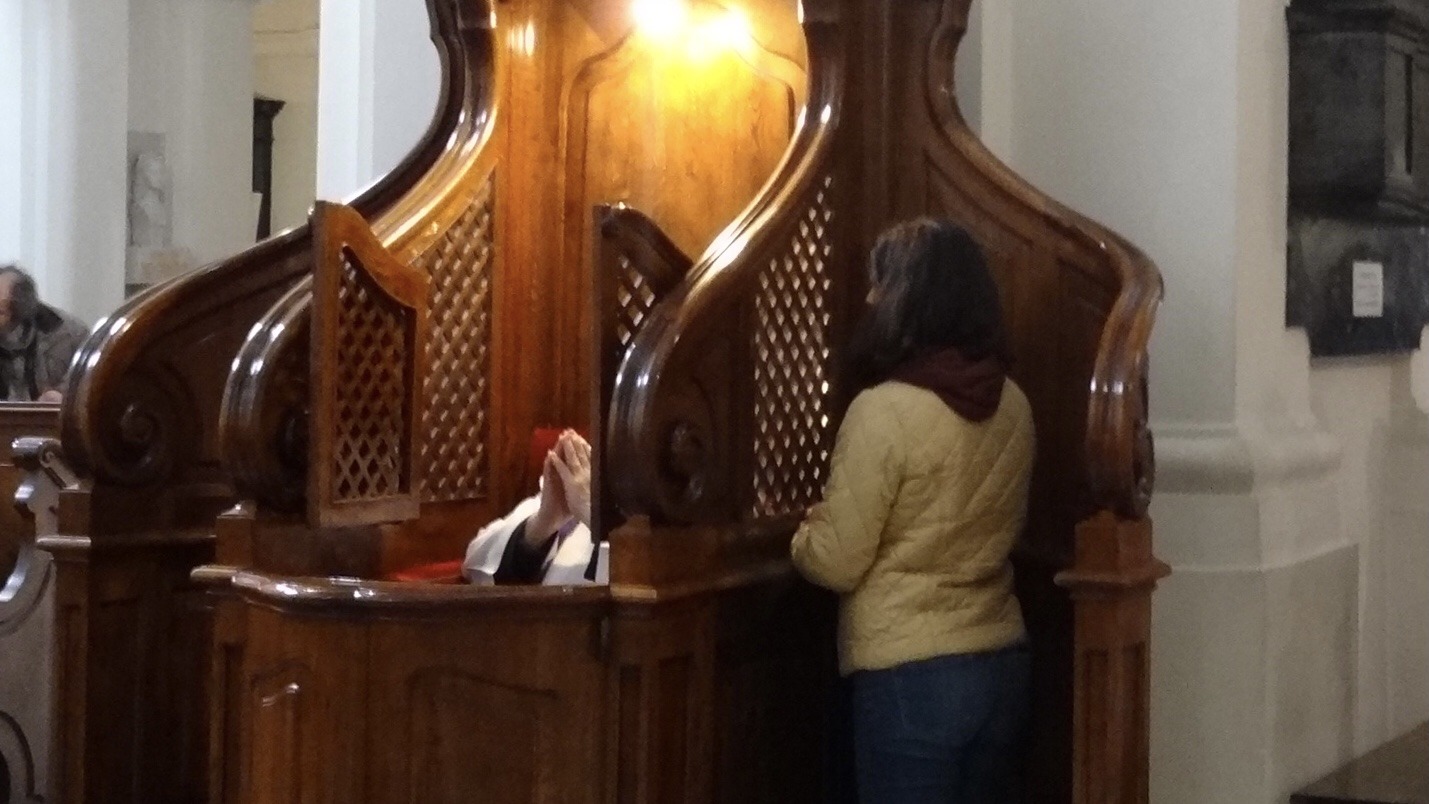
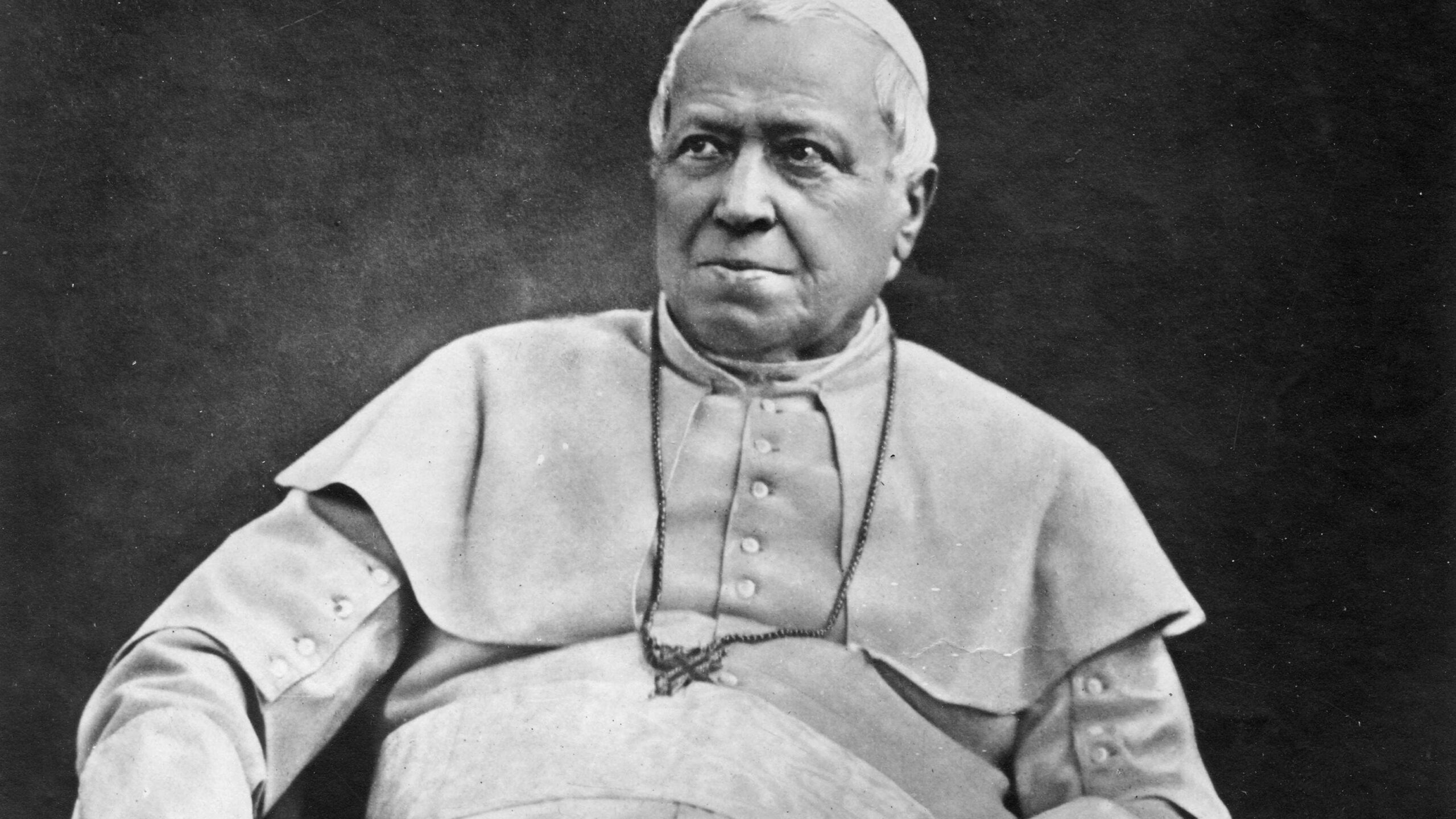 Protestants—some of them: those who spend a large portion of their lives pondering the errors of Rome—seem to think infallibility means a pope can tell us all things. Or at least those things I really would like to know. A pope can use his infallibility to tell us anything he wants to reveal. Can’t he? If he wanted, he could tell me how many jelly beans are in the jar, or how many steps there are between the Tiber River and Peter Kwasniewski’s license plate. So why doesn’t he give an infallible interpretation of every verse of Scripture?
Protestants—some of them: those who spend a large portion of their lives pondering the errors of Rome—seem to think infallibility means a pope can tell us all things. Or at least those things I really would like to know. A pope can use his infallibility to tell us anything he wants to reveal. Can’t he? If he wanted, he could tell me how many jelly beans are in the jar, or how many steps there are between the Tiber River and Peter Kwasniewski’s license plate. So why doesn’t he give an infallible interpretation of every verse of Scripture? Ultramontanists are like the bogeyman: a mythical being used to frighten children. Thus at The Catholic Thing, Fr. Jeffrey Kirby warns his readers about “the rise of the Ultramontanists.” You never know when the bogeyman is going to come and get you; you never know when the Ultramontanist is going to wreck the Church. It’s an always-present danger. I have very frequently been accused of being an Ultramontanist, for no other reason than that I defend the pope and believe the Holy Spirit safeguards the Church from ever teaching error. Thus whenever I see an article like this one, the first thing I do is check whether the author defines what an Ultramontanist is. Not everyone who uses the term does; it’s a disservice to the reader.
Ultramontanists are like the bogeyman: a mythical being used to frighten children. Thus at The Catholic Thing, Fr. Jeffrey Kirby warns his readers about “the rise of the Ultramontanists.” You never know when the bogeyman is going to come and get you; you never know when the Ultramontanist is going to wreck the Church. It’s an always-present danger. I have very frequently been accused of being an Ultramontanist, for no other reason than that I defend the pope and believe the Holy Spirit safeguards the Church from ever teaching error. Thus whenever I see an article like this one, the first thing I do is check whether the author defines what an Ultramontanist is. Not everyone who uses the term does; it’s a disservice to the reader.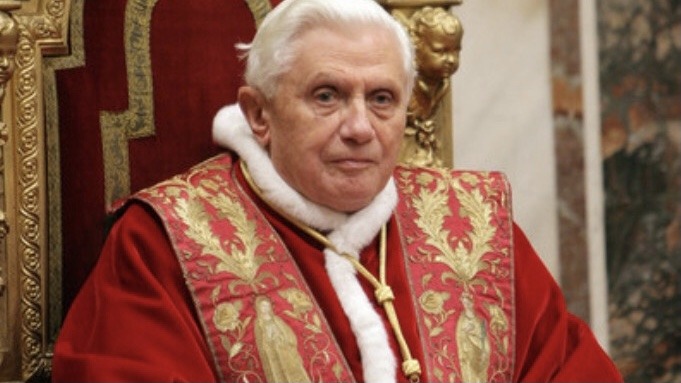 Popes say a lot; you can count on one hand the number of times infallibility has been exercised in 175 years. When Pope Francis said “Who am I to judge?” he was not infallible. Even when you interpret that statement correctly—and most people don’t—he was not infallible. None of Benedict XVI’s social justice encyclicals are infallible. John Paul II’s Theology of the Body is not infallible. Humanae Vitae is not infallible. Nothing that John XXIII taught is infallible. When a pope gives a homily, or teaches at a Wednesday audience, or speaks to a reporter, or engages in small talk during breakfast, or screams obscenities after stubbing his toe, he does not speak infallibly.
Popes say a lot; you can count on one hand the number of times infallibility has been exercised in 175 years. When Pope Francis said “Who am I to judge?” he was not infallible. Even when you interpret that statement correctly—and most people don’t—he was not infallible. None of Benedict XVI’s social justice encyclicals are infallible. John Paul II’s Theology of the Body is not infallible. Humanae Vitae is not infallible. Nothing that John XXIII taught is infallible. When a pope gives a homily, or teaches at a Wednesday audience, or speaks to a reporter, or engages in small talk during breakfast, or screams obscenities after stubbing his toe, he does not speak infallibly.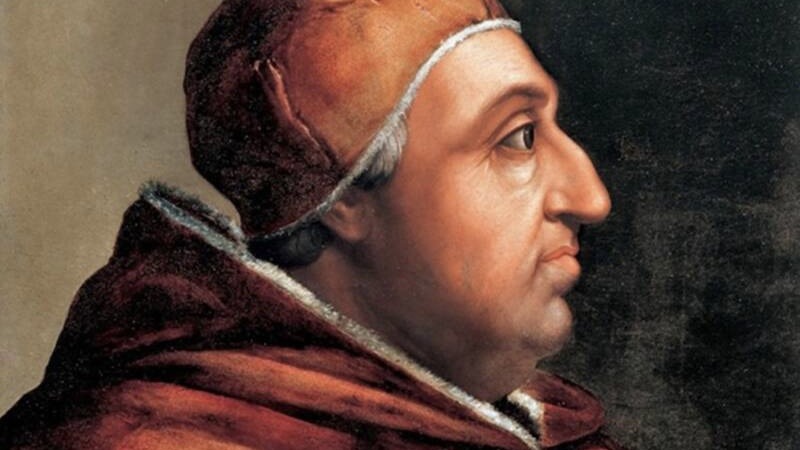 Now that we have seen how the Church defines infallibility at Vatican I, we can turn to what infallibility does not mean. And the first thing it does not mean is that a pope can never sin. Catholics would have to deny their own Church history to believe this claim, typically made by anti-Catholic Protestants. Popes Stephen VI, John XII, Urban VI, Sixtus IV, Innocent VIII, Alexander VI, and Paul IV (to name only a few) were notorious sinners. Catholics have hidden none of this and don’t need to.
Now that we have seen how the Church defines infallibility at Vatican I, we can turn to what infallibility does not mean. And the first thing it does not mean is that a pope can never sin. Catholics would have to deny their own Church history to believe this claim, typically made by anti-Catholic Protestants. Popes Stephen VI, John XII, Urban VI, Sixtus IV, Innocent VIII, Alexander VI, and Paul IV (to name only a few) were notorious sinners. Catholics have hidden none of this and don’t need to.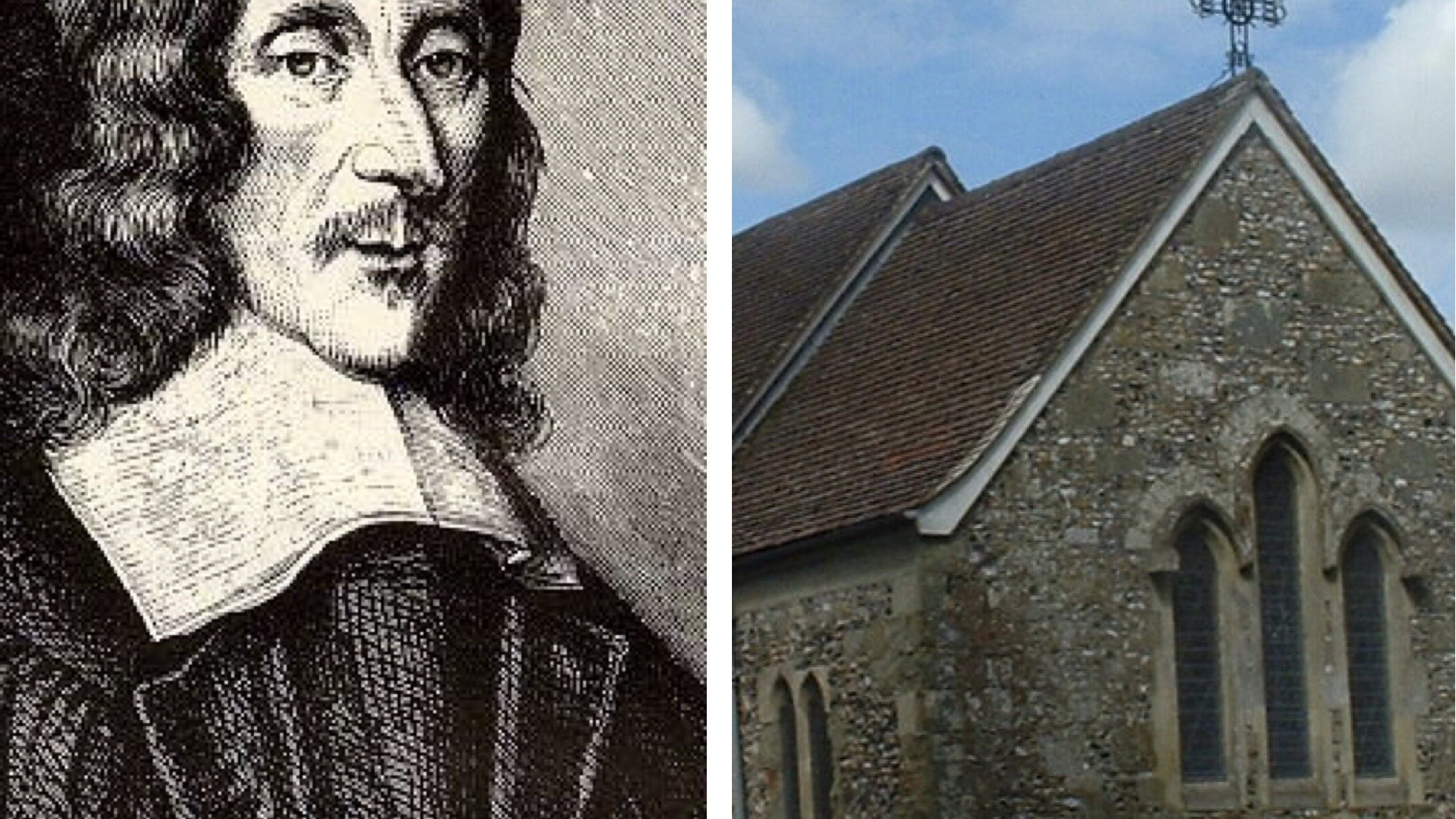 Miserere me, Domine—“Have mercy on me, O Lord”; that’s the 51st psalm. If you pray the traditional Liturgy of the Hours, you pray it every morning at Lauds. You begin every day with repentance, as you begin every Mass with repentance. “Have mercy on me, O Lord, for I have sinned.” It is good for those to be the first words you say each day. In that spirit George Herbert begins his poem: “Lord, I confesse my sinne is great.” Before a Catholic becomes a full member of the Church, the first thing he or she does is go to Confession. Repentance is first; the Church’s readings for the first Sunday of Lent, Year A—the first of the three-year cycle—begin with the reminder that we all have sinned in Adam. Repentance is first.
Miserere me, Domine—“Have mercy on me, O Lord”; that’s the 51st psalm. If you pray the traditional Liturgy of the Hours, you pray it every morning at Lauds. You begin every day with repentance, as you begin every Mass with repentance. “Have mercy on me, O Lord, for I have sinned.” It is good for those to be the first words you say each day. In that spirit George Herbert begins his poem: “Lord, I confesse my sinne is great.” Before a Catholic becomes a full member of the Church, the first thing he or she does is go to Confession. Repentance is first; the Church’s readings for the first Sunday of Lent, Year A—the first of the three-year cycle—begin with the reminder that we all have sinned in Adam. Repentance is first.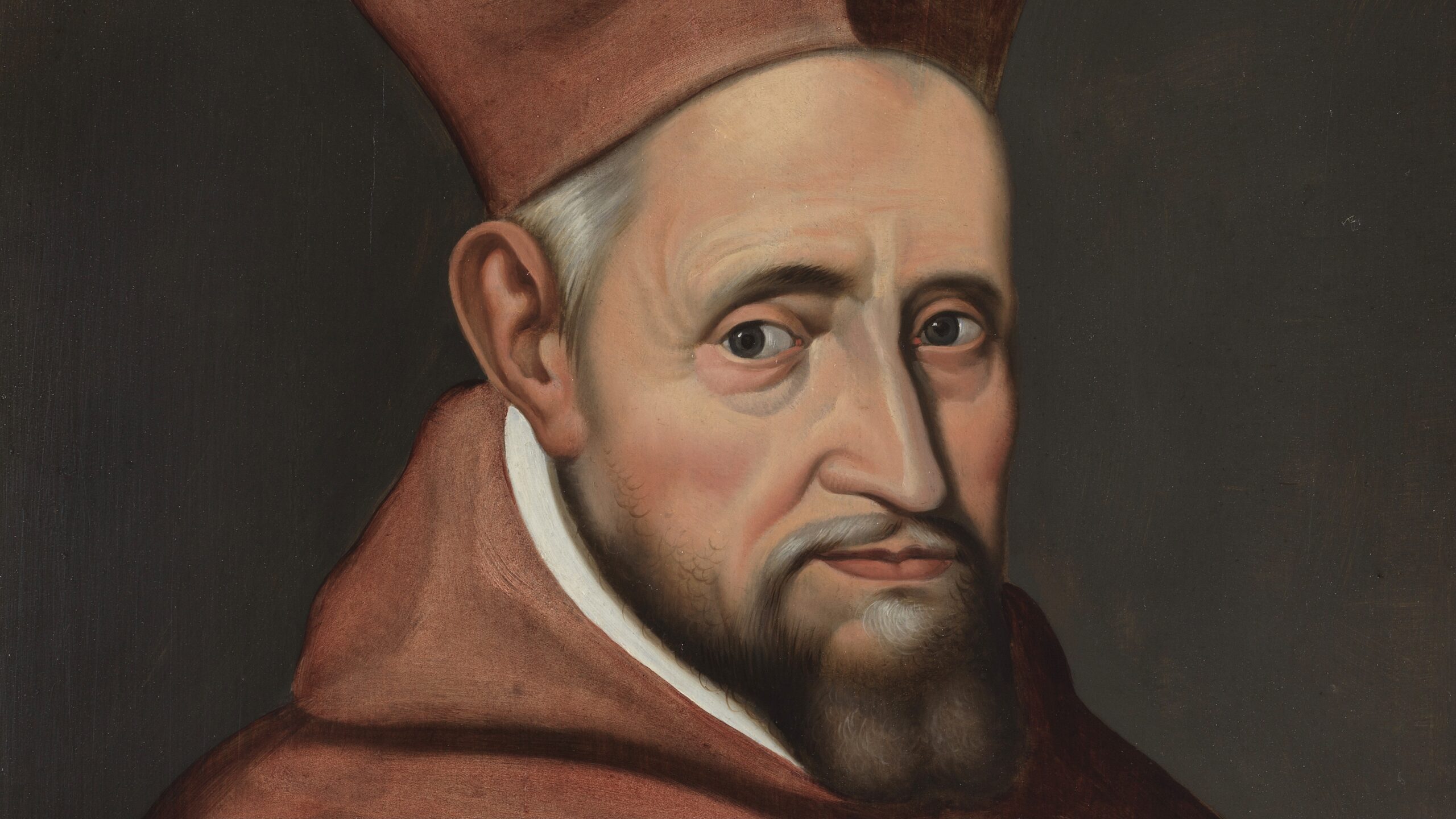 There are two ways to misquote someone, and one of them is to get the words wrong. The other is to get the words right but take them so far out of context that you misrepresent what the author meant. At Crisis, someone named Kennedy Hall is the latest to revive a common misquotation of Bellarmine that falls under the latter species. His article is titled “Pope Francis’s Schism.” He does not mean that Pope Francis is in schism, or could go into schism. He means that the pope would cause a schism if he decides to prohibit bishops from allowing the Tridentine rite without Rome’s permission. The problem I have with all of this is less that Catholics like Mr. Hall are going around prophesying schism. My problem is the abuse of Bellarmine to justify it.
There are two ways to misquote someone, and one of them is to get the words wrong. The other is to get the words right but take them so far out of context that you misrepresent what the author meant. At Crisis, someone named Kennedy Hall is the latest to revive a common misquotation of Bellarmine that falls under the latter species. His article is titled “Pope Francis’s Schism.” He does not mean that Pope Francis is in schism, or could go into schism. He means that the pope would cause a schism if he decides to prohibit bishops from allowing the Tridentine rite without Rome’s permission. The problem I have with all of this is less that Catholics like Mr. Hall are going around prophesying schism. My problem is the abuse of Bellarmine to justify it.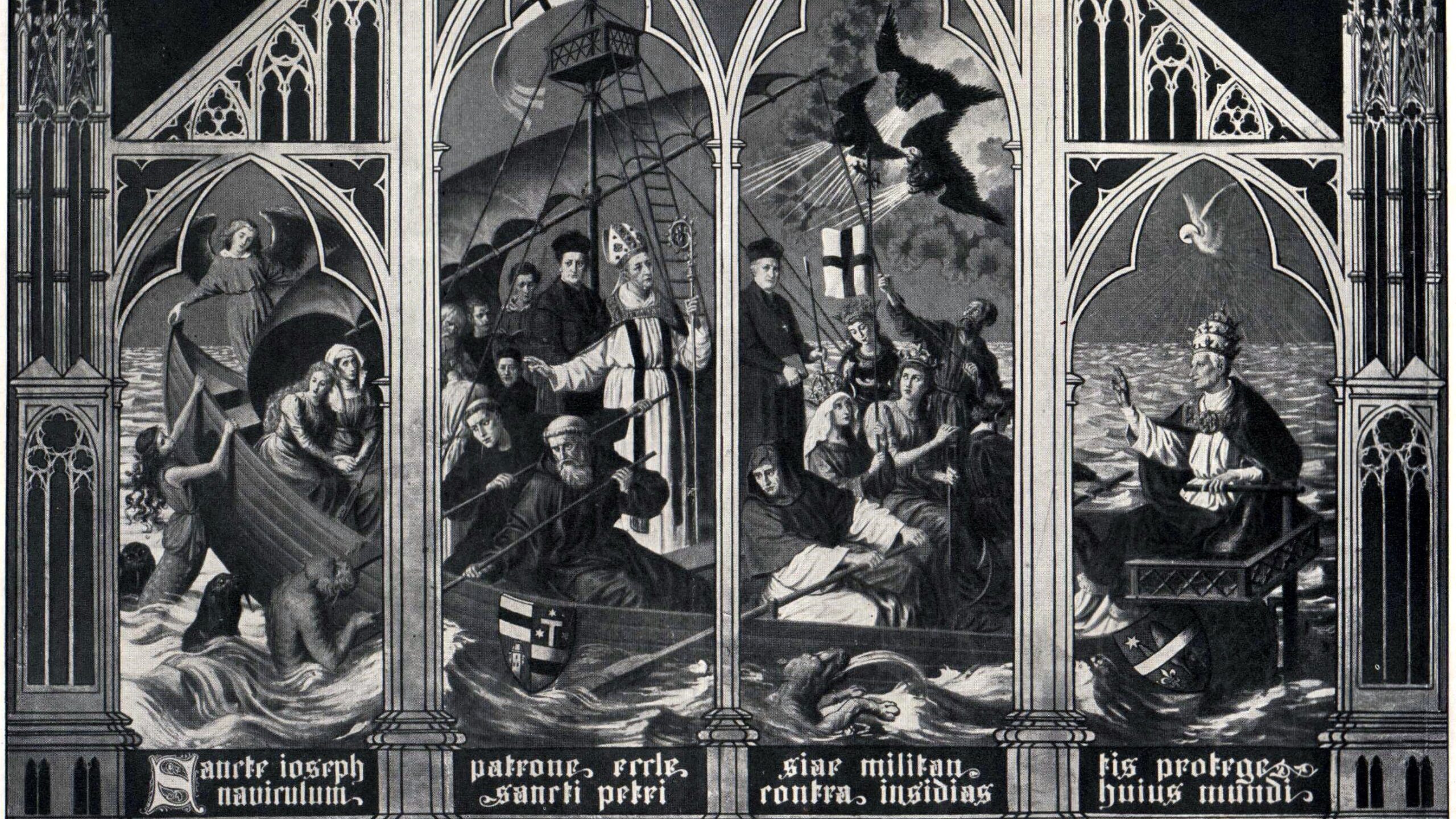 In part 2 of this series, I want to call your attention to Ludwig Ott’s discussion of infallibility in Fundamentals of Catholic Dogma (p. 284), because he gives a very helpful anatomy of Vatican I’s definition. Ott was a German priest, theologian, and medievalist, as well as a professor of dogmatic theology, and Fundamentals is a standard reference work in the field (together with the highly respected Sources of Catholic Dogma, by Henry Denzinger). Denzinger’s book was first published in 1854, and Ott’s a century later, but they remain the standard references on Catholic dogma. Ott distinguishes four aspects of papal infallibility: the bearer; the object; the condition; and the ground.
In part 2 of this series, I want to call your attention to Ludwig Ott’s discussion of infallibility in Fundamentals of Catholic Dogma (p. 284), because he gives a very helpful anatomy of Vatican I’s definition. Ott was a German priest, theologian, and medievalist, as well as a professor of dogmatic theology, and Fundamentals is a standard reference work in the field (together with the highly respected Sources of Catholic Dogma, by Henry Denzinger). Denzinger’s book was first published in 1854, and Ott’s a century later, but they remain the standard references on Catholic dogma. Ott distinguishes four aspects of papal infallibility: the bearer; the object; the condition; and the ground.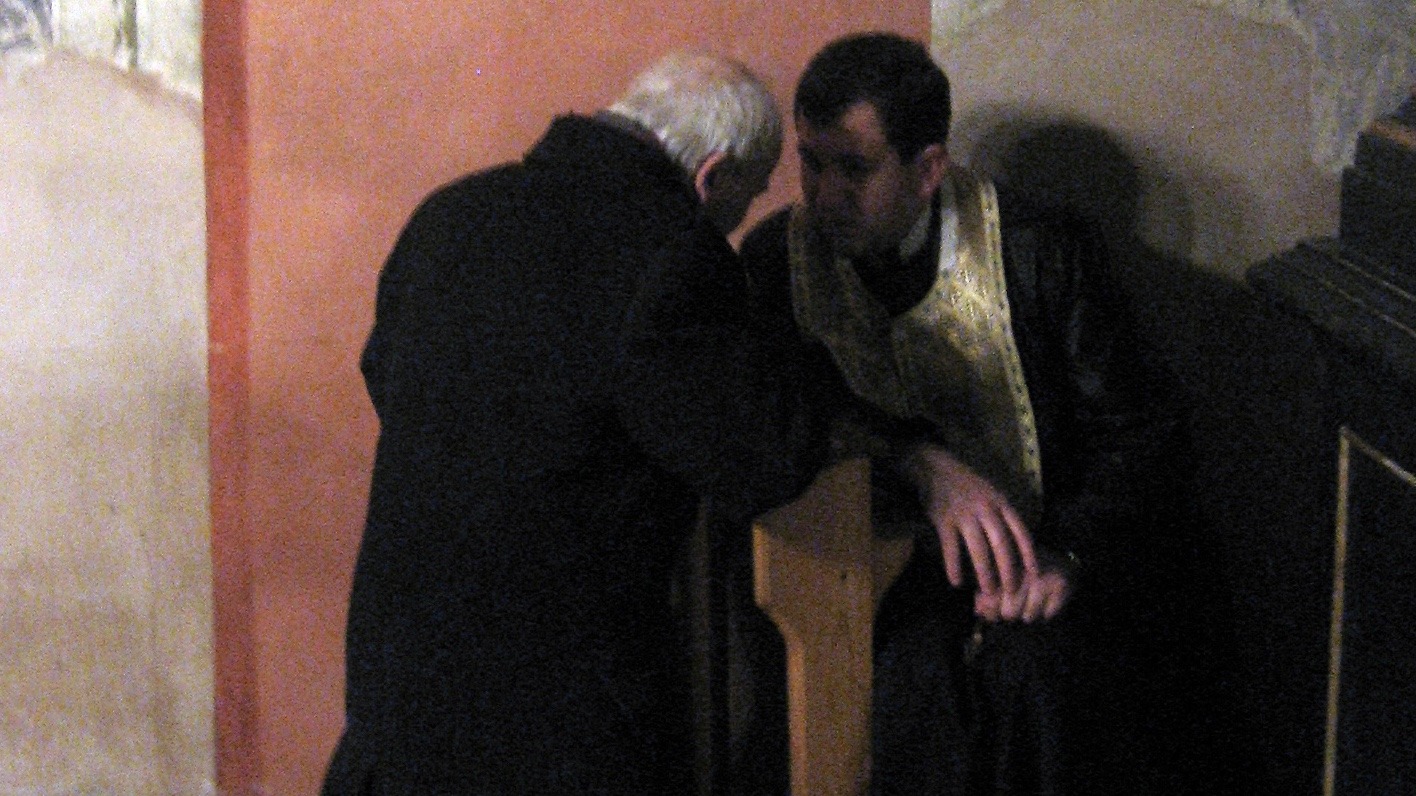 It is wearisome to need to go to confession every week, week after week, but it is more wearisome to go once a year, even once every several years. I don’t know why I have often chosen the latter. The sins pile up like laundry you stare at in denial. That’s my problem this Ash Wednesday: soiled clothes. Maybe it’s my problem every Ash Wednesday. Ten Lents ago, when it was my first year blogging, I spent a liturgical season writing about the Victorian poet Christina Rossetti. I’ve not done that kind of thing since, so perhaps it’s time again. This year I’m going to talk about John Donne—with a break one week for George Herbert and another week for Gerard Manley Hopkins.
It is wearisome to need to go to confession every week, week after week, but it is more wearisome to go once a year, even once every several years. I don’t know why I have often chosen the latter. The sins pile up like laundry you stare at in denial. That’s my problem this Ash Wednesday: soiled clothes. Maybe it’s my problem every Ash Wednesday. Ten Lents ago, when it was my first year blogging, I spent a liturgical season writing about the Victorian poet Christina Rossetti. I’ve not done that kind of thing since, so perhaps it’s time again. This year I’m going to talk about John Donne—with a break one week for George Herbert and another week for Gerard Manley Hopkins. American factionalist Cardinal Burke, who falsely accuses Joe Biden of being an “apostate,” and who despite the preposterous hopes of Pope Francis haters is not papabile, says that Pope Francis is in schism. Here is where canon law, which Burke presumably knows so well, doesn’t do his reputed sagacity any favors. Schism, says Canon 751, is “the refusal of submission to the Supreme Pontiff or of communion with the members of the Church subject to him.” How is it that Pope Francis refuses to submit to himself? Even Burke understood that accusing the pope of schism is a “contradiction.”
American factionalist Cardinal Burke, who falsely accuses Joe Biden of being an “apostate,” and who despite the preposterous hopes of Pope Francis haters is not papabile, says that Pope Francis is in schism. Here is where canon law, which Burke presumably knows so well, doesn’t do his reputed sagacity any favors. Schism, says Canon 751, is “the refusal of submission to the Supreme Pontiff or of communion with the members of the Church subject to him.” How is it that Pope Francis refuses to submit to himself? Even Burke understood that accusing the pope of schism is a “contradiction.” Words matter, and because words matter, they must be used precisely—particularly when you are talking about sins against the faith. Two years ago, Cardinal Burke falsely claimed that President Biden is an “apostate.” “Such a person,” Burke said, “who claims to be a Catholic and yet promotes in such an open, obdurate, and aggressive way a crime like procured abortion is in the state, at least, of apostasy.” This was madness. Cardinal Burke is a canon lawyer and ought to know better. Is it possible to count the errors in these words?
Words matter, and because words matter, they must be used precisely—particularly when you are talking about sins against the faith. Two years ago, Cardinal Burke falsely claimed that President Biden is an “apostate.” “Such a person,” Burke said, “who claims to be a Catholic and yet promotes in such an open, obdurate, and aggressive way a crime like procured abortion is in the state, at least, of apostasy.” This was madness. Cardinal Burke is a canon lawyer and ought to know better. Is it possible to count the errors in these words? No lay Catholic has any business whatever to say that anyone is a heretic. Only trained theologians at a formal canonical trial can determine that anyone is guilty of heresy. The Church alone decides this. We do not sit and judge our lay brothers and sisters. We can, however, say what heresy is, and the reason we can is that the Church defines it—very specifically—in canon law. I thought it would be helpful to discuss that definition, both as a correction to misuse of the term, as well as because the subject of heresy is going to come up in a post or two I plan on writing soon.
No lay Catholic has any business whatever to say that anyone is a heretic. Only trained theologians at a formal canonical trial can determine that anyone is guilty of heresy. The Church alone decides this. We do not sit and judge our lay brothers and sisters. We can, however, say what heresy is, and the reason we can is that the Church defines it—very specifically—in canon law. I thought it would be helpful to discuss that definition, both as a correction to misuse of the term, as well as because the subject of heresy is going to come up in a post or two I plan on writing soon.